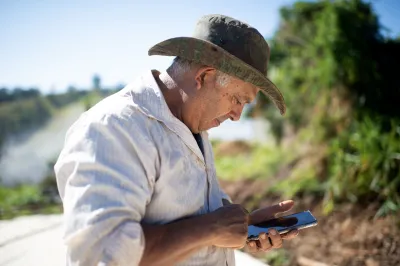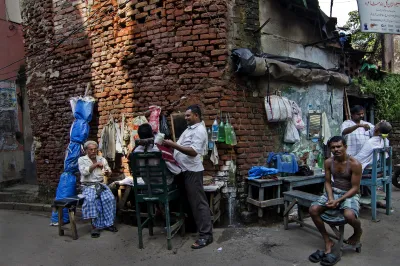Interview with Greg Reeve from Vodafone
Greg Reeve is the Head of Mobile Payment Solutions at Vodafone.
Tell us a bit about your work and whom you’re trying to serve.
I head up Mobile Payment Solutions which includes the development and deployment of the Vodafone Money Transfer service, which is locally branded as M-PESA or M-Paisa. The service is operational in Kenya, Tanzania, Afghanistan and Fiji. It will be launching soon in other markets. When we look at selecting new markets there must be an un-met need for basic financial services within a large sub-section of the population.
The M-PESA product is aimed at the mass market within the country, as both banked and unbanked will benefit from the increase convenience M-PESA offers for transferring money, buying airtime and paying bills. This is important as M-PESA is all about financial inclusion so providing service to both the rich and poor and often connecting the two!
What has been the biggest challenge for mobile money services this year?
There are two challenges for all mobile money services. The biggest challenge to launching a new service is understanding and adapting to local regulations. As we know, and have seen, these services can have large consumer benefits. However, not all markets have the same regulatory framework and the step change required in terms of meeting the local regulations can sometimes slow down implementation times.
The biggest challenge to making an existing service successful is customer education. The concept is new and we have to help people learn about it and understand how it could benefit them.
This is particularly relevant for customers who are currently financially excluded. As the benefits of financial services are generally only promoted to wealthier individuals. Therefore any new entrant to the market, targeting a wider audience, must first consider how to present the message to their customers.
A good example of how this works could be demonstrated by our progress with Vodacom in Tanzania. Through a lot of hard work and positioning of the marketing strategy they have reached a tipping pointwhere customers are now telling each other about the benefits of M-PESA; this has contributed to the 19% month on month transaction growth which we have been enjoying for the last 12 months in a row.
What can you tell us about M-KESHO, the new savings product in Kenya?
I’m absolutely delighted about the launch. This service is revolutionary as for the first time there is a savings product in Kenya that is accessible to every Kenyan.
Take the example of a farm laborer who either doesn’t have a bank account or even if he does he is unable to access as it is miles away from the field he is working at. A classic example of someone financially disadvantaged. Now when he is sent his wages, possibly via M-PESA, he can now transfer his salary directly to his M-KESHO to start earning interest on his savings account – All this done via a mobile phone, he can even do it in the field he is working in. To be frank I would struggle to do this in the UK or the US, Kenya is leading the way.
How would you describe the response to the M-KESHO launch?
It’s been fantastic. Our colleagues in Equity and Safaricom, who license the service in Kenya have been rapidly adding new staff to cope with the massive influx of new customers all this before we’ve really started advertising the service. We’ve also had some really encouraging interest from other mobile operators that are keen to bring M-PESA and M-KESHO to their markets.
What’s on the horizon for mobile money at Vodafone?
Whilst the market is evolving very quickly our overriding strategy remains constant. Our aim is to provide products and services which provide real benefit to our customers – such as M-PESA and M-KESHO. Often being poor is not about having no money at all but about only having money at a given point in time; in essence it can be a cash flow problem. M-PESA and now M-KESHO undoubtedly help to relieve that burden by providing a cost effective method to get funds quickly to cover that lean time. The convenience and effectiveness of both these services is especially important for customers with low incomes.
Safaricom commissioned a survey at the end of last year and found that the people sending money saved 540 Ksh (US$6.67) per transaction and the person receiving money saved 202 Ksh ($US2.48) per transaction compared to their previous money transfer service. But what is particularly rewarding is that with that over 24% of people spent the they had saved on buying food. The benefits were also evident in terms of the convenience of the service – on average people were able to save just over three hours per transaction. In turn this allowed 50% of the people receiving money to spend more time working. When you are struggling to earn a living, being able to spend more time at work is vital.
-Greg Reeve, as told to Jim Rosenberg




Add new comment